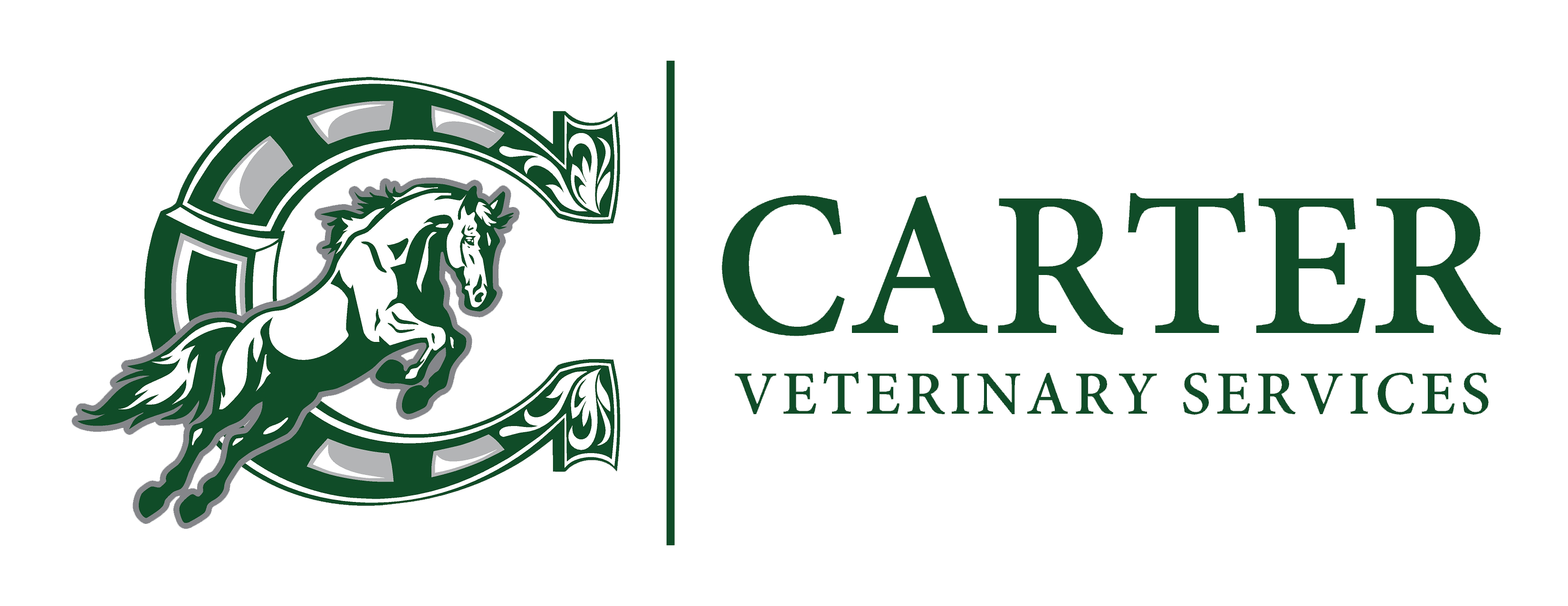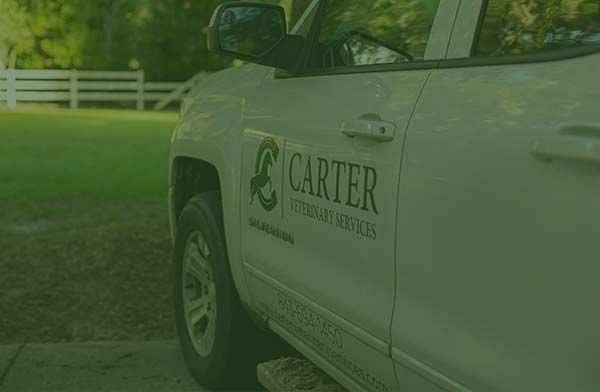Seasonal Vaccines
Routine Equine Disease Prevention in the Lowcountry
Carter Veterinary Services’ Spring & Fall Vaccine Packages
Carter Veterinary Services provides horses in the Lowcountry — including in Bluffton, Hilton Head, Ridgeland, Savannah, and everywhere in between — with both their spring and fall vaccinations. These packages include physical exams, vaccines, fecal egg counts, and dewormers. The vaccinations given here in the spring are typically focused on two main disease areas — insect-borne and communicable diseases. Continue reading this page to learn more about what diseases are being vaccinated against as well what to expect from Carter Veterinary Services during your visit.
Want to schedule an appointment?
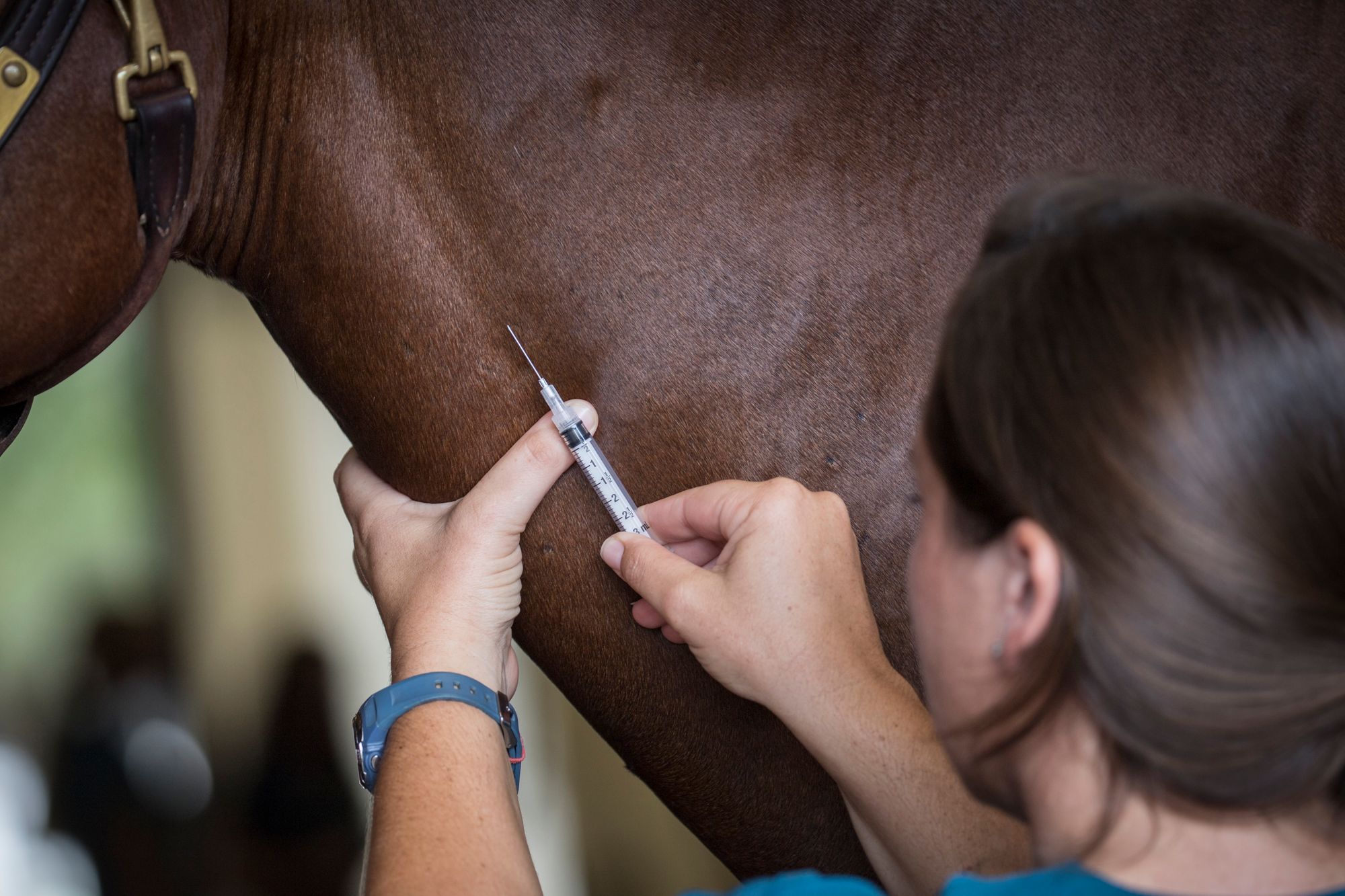
Core & Risk-Based Vaccines:
Every horse should receive vaccinations every year against these high-risk diseases:
Rabies
West Nile Virus
Tetanus
Equine Encephalitis (EEE/WEE)
Equine Influenza
Equine Herpesvirus (Rhinopneumonitis)
If you plan on traveling often with your horse, or it has higher odds of exposure for other reasons, other vaccines you may want to also get for them this spring may include:
Rotavirus
Strangles
Leptospirosis
And More
Key Information About Spring Vaccines For Horses
So, which vaccines does your horse really need this spring? It all depends. Factors such as their age, previous vaccinations, past illness history, and location all play a role in determining what vaccines would be best to give your horse. Some of the above-mentioned risk-based vaccines may want to be considered on top of the core vaccines if you are planning to routinely take them into public places, in particular if there is a high density of horses there, such as in showgrounds or stables.
Besides communicable diseases, diseases which primarily spread when horses are in close contact with each other, insect-borne diseases are the other main type of disease that is important to vaccinate your horse against this time of year. Mosquitoes can transmit diseases such as West Nile Virus and a number of varieties of Equine Encephalitis, which can be very dangerous to your horse’s health. Remember, horse’s spend most of their time outdoors, so think about how many bites they get each day.
Since mosquito season generally begins around the first of March, the ideal time to get your horse’s spring vaccinations are in April. By the time mosquito season begins, your horse will have full protection.
Want to get your horse vaccinated for communicable and insect-borne diseases? Contact Carter Veterinary Services today to schedule your appointment.
What You Need to Know About Fall Vaccines for Horses
As the temperature starts to decline and get cooler, the need for horse owners to worry about so many insect-related issues declines as well. Instead, this time of the year is more oriented towards thinking about good equine nutrition and implementing a preventative health strategy for cooler weather. Your veterinarian will be able to determine which core and risk-based inoculations are appropriate for any given horse. The dosing frequency of vaccines for horses will vary based on their age, when they last got vaccinated, and what vaccines they got previously.
Fall vaccines are generally administered by veterinarians between September and early October. For horses that have been already vaccinated, it usually includes a booster vaccination with EIV, EHV-¼, and EWT+WN. The goal is to stimulate specific immune responses to prime the horse’s system to develop antibodies against specific viral diseases. The effectiveness of resistance to infectious diseases can be expected to last from four to six months before another booster is called for. Besides core vaccines, other risk-based vaccines may be appropriate to add on during the fall months, depending on your location and the activities you engage in. Risk-based diseases are not necessary for all horses, and are less likely to lead to death than core diseases. If your horse travels often, such as going to competitions or other farms for boarding, its risk levels for coming into contact with infectious pathogens increases, so getting them vaccinated fully for more contagious diseases is called for.
Our veterinarians at Carter Veterinary Services will work with you to determine the optimal vaccine protocol for your horse. Contact us today if you have any questions or would like to schedule an appointment.
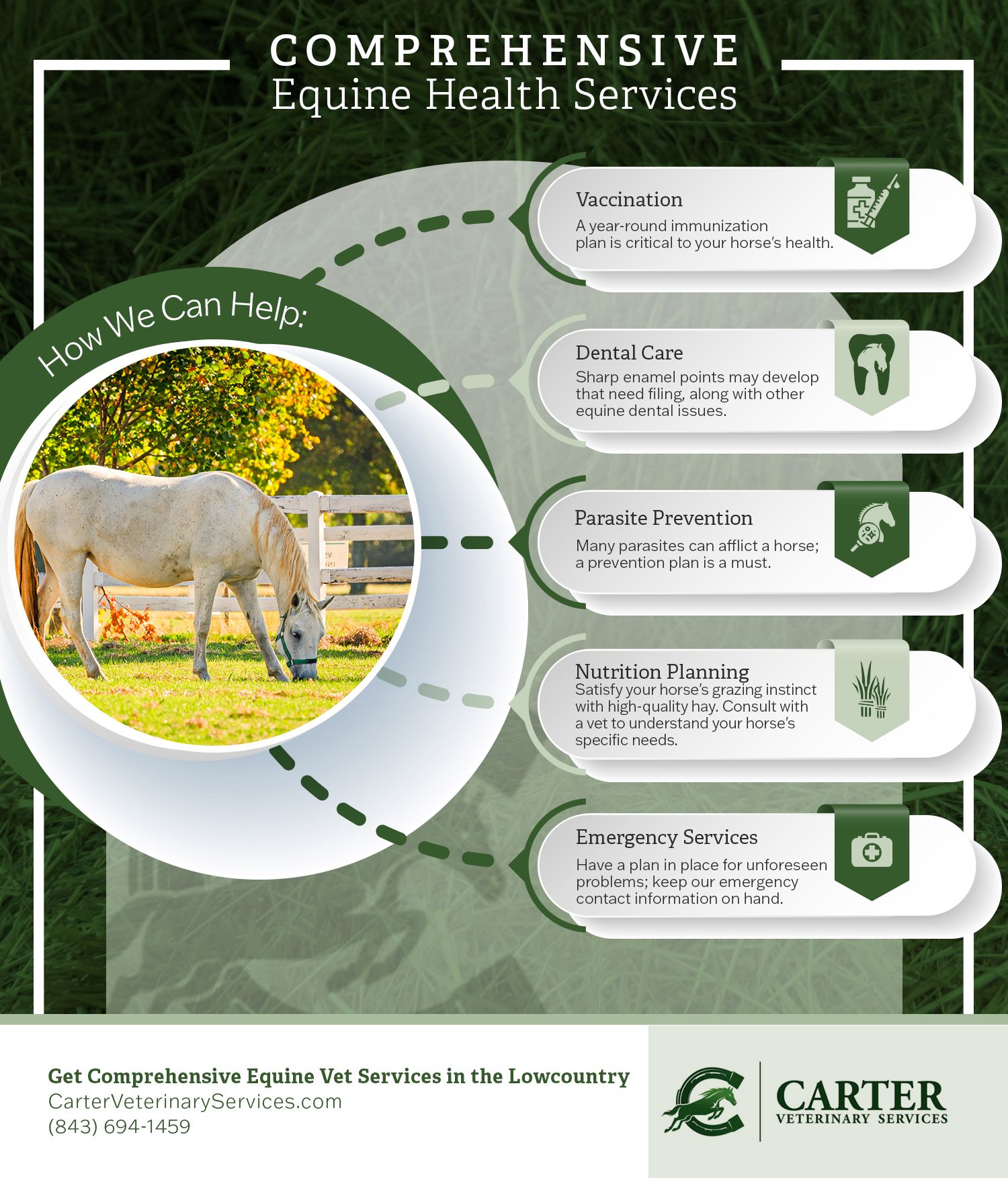
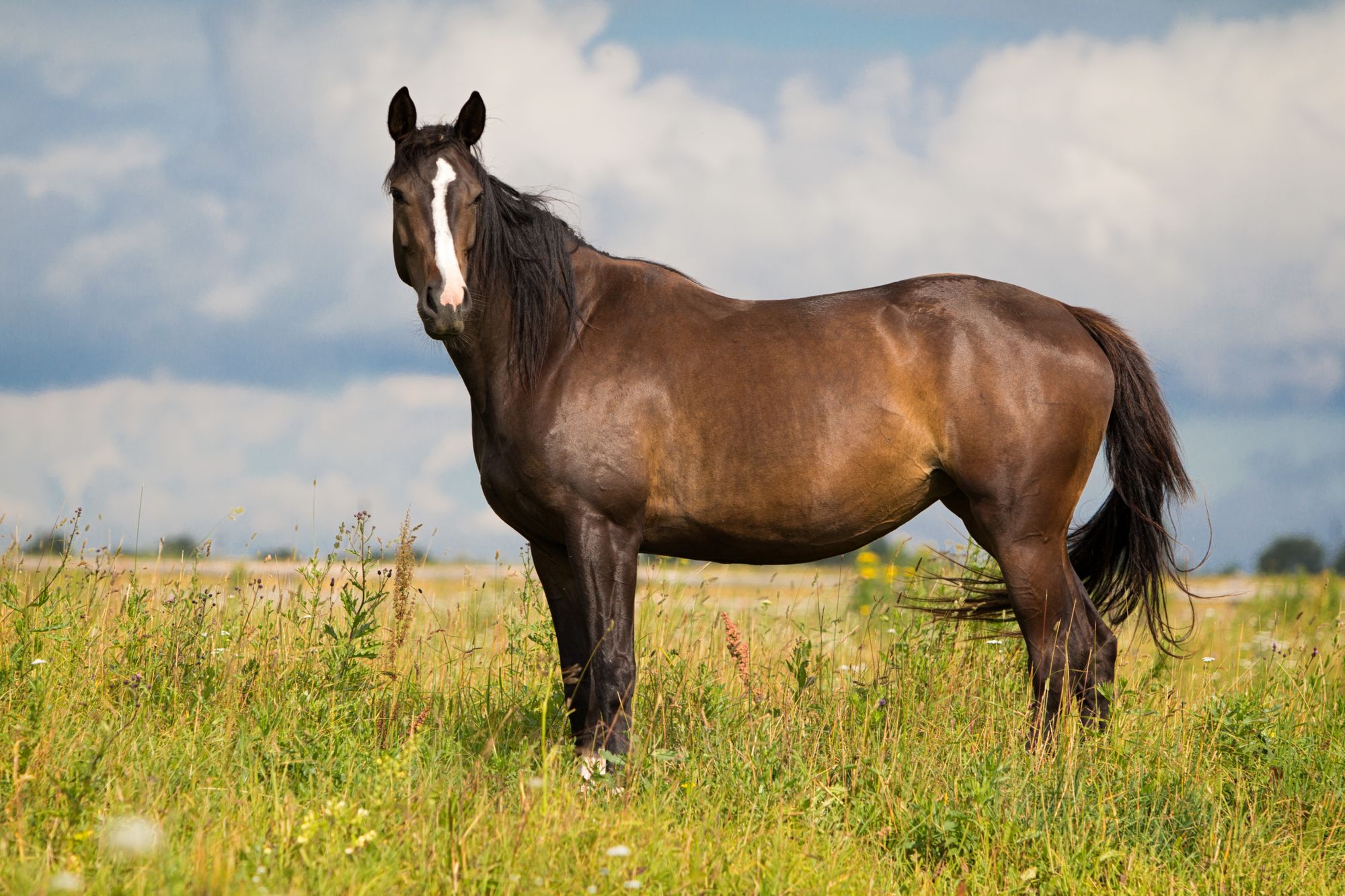
Details About Equine Vaccines* We Recommend
Both our spring and fall vaccination packages start with a brief physical examination of your horse by a veterinarian. This is a good time to ask any questions and express any concerns you have that you would like to discuss. Routine dental maintenance may also be performed to prevent or minimize issues for your horse later on. Getting your horse checked by a veterinarian at least twice a year is strongly recommended, as it ensures any problems with your horse are caught early.
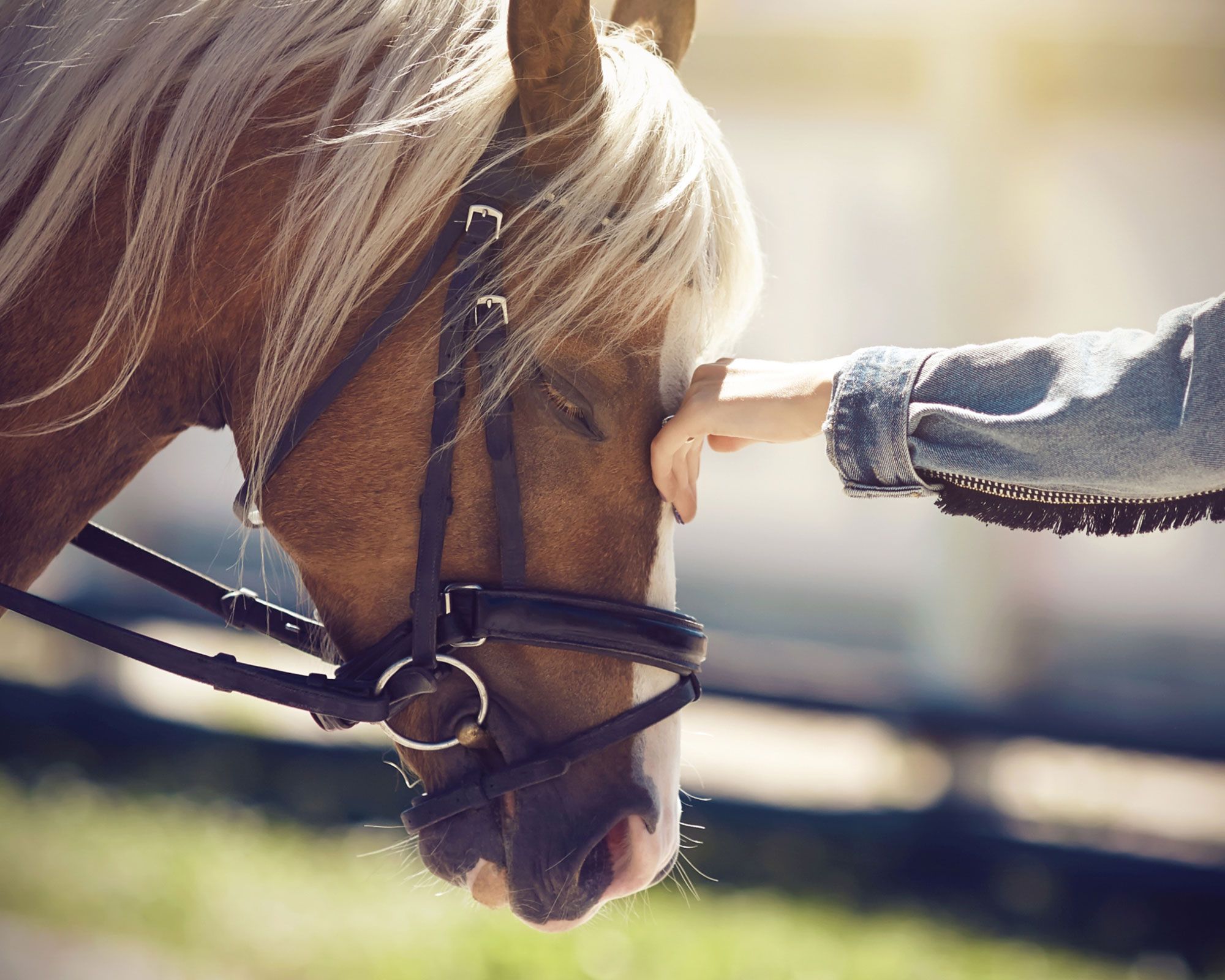
The main spring vaccines we recommend are:
Flu/Rhino - Protection against Equine influenza and Equine herpesvirus, also known as rhinopneumonitis. This vaccine is recommended twice a year.
EWT/WN - Protection against Equine encephalomyelitis, Tetanus, and West Nile. Equine encephalomyelitis (EEE and WEE) is a viral neurologic disease caused by mosquitos. Tetanus AKA lockjaw is caused by toxins produced by the anaerobic bacterium Clostridium tetani. West Nile is caused by a flavivirus that is also transmitted through mosquitoes. This vaccine is recommended twice a year.
Rabies - This is a viral disease affecting the nervous system that is spread through saliva and is most commonly transmitted through bite wounds. This disease is also zoonotic, which means humans can become infected as well. The rabies vaccine is recommended once a year.
*Carter Veterinary Services administers Zoetis™ vaccines and is covered under the Equine Immunization Support Guarantee.

Other Services That Come With Our Spring Vaccine Package:
Fecal Egg Count - Please collect two fresh fecal balls before the scheduled appointment. The sample can be collected that morning in a Ziploc bag labeled with your horse’s name and placed in the refrigerator to keep it fresh. Carter Veterinary Services has implemented a new in-house technology that is fully automated to provide an accurate in-house test. The Parasight System provides both a measure of the number of intestinal worms in your horse as well as identifying the intestinal worms.
Dewormer - Carter Veterinary Services recommend deworming at least twice yearly. This deworming program helps to eliminate parasite resistance and target the main parasites that horses may get throughout the year. We also provide a more tailored deworming strategy when needed
This is also a great time to make sure your horse is up to date on their Coggins test as well as dentals and sheath cleanings.
Carter Veterinary Service also offers in-house bloodwork for a baseline to ensure the health of your horse.
Common Fall Vaccines For Horses
- Eastern & Western equine encephalomyelitis (EEE/WEE)
- West Nile virus (WNV)
- Equine Rhinopneumonitis Influenza (Flu/Rhino)
- Tetanus
These diseases are rarely fatal, but they are highly contagious between horses, so getting vaccinations are important. Horses that are vaccinated in barns where outbreaks of contagious equine disease occurs are far more likely to be asymptomatic or not catch the disease in the first place than horses who go unvaccinated.
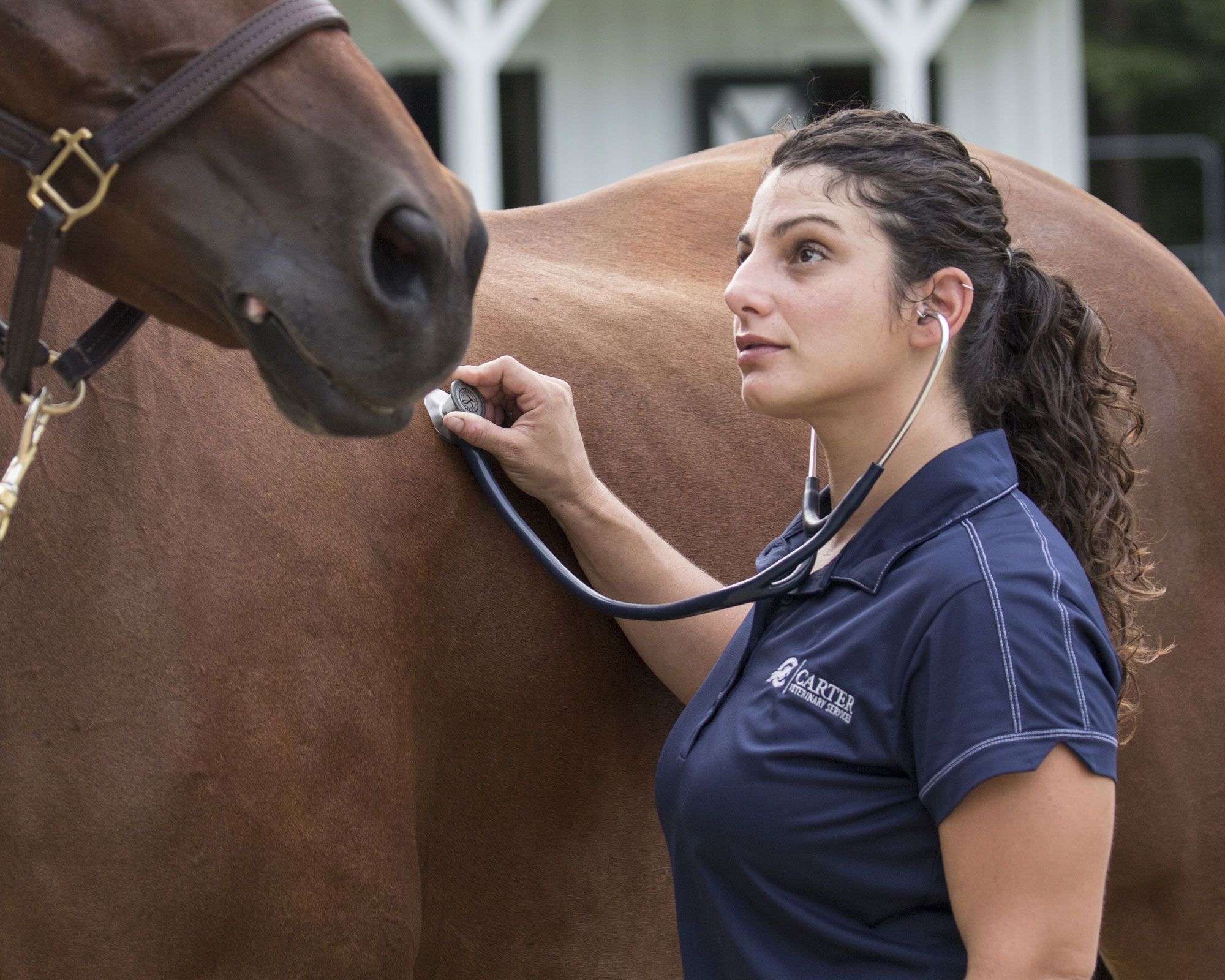
What To Expect During Your Visit
There is no one-size-fits all solution for vaccinating your horses. Our veterinarians provide vaccinations individualized for each horse on your property. Our ultimate goal is to keep your horse in good health and help protect them against preventable diseases.
If you are a new patient, please fill out the New Patient Registration form. We will look at your horse’s past medical and vaccination history to determine the best way to provide them the best possible care year-round.
Get Your Horse Vaccinated in the Lowcountry
Get Your Horse Vaccinated in the Lowcountry
Carter Veterinary Services, LLC is your Lowcountry equine veterinarian offering comprehensive support for everything from general equine care and routine vaccinations to emergency services and equine dentistry.
Our team is committed to providing you and your horses with the best possible general equine care in the Lowcountry. Whatever type of medical issue your horse is facing, we will work with you to provide the comprehensive veterinary care they need. Schedule an appointment for your horse's vaccines today!
